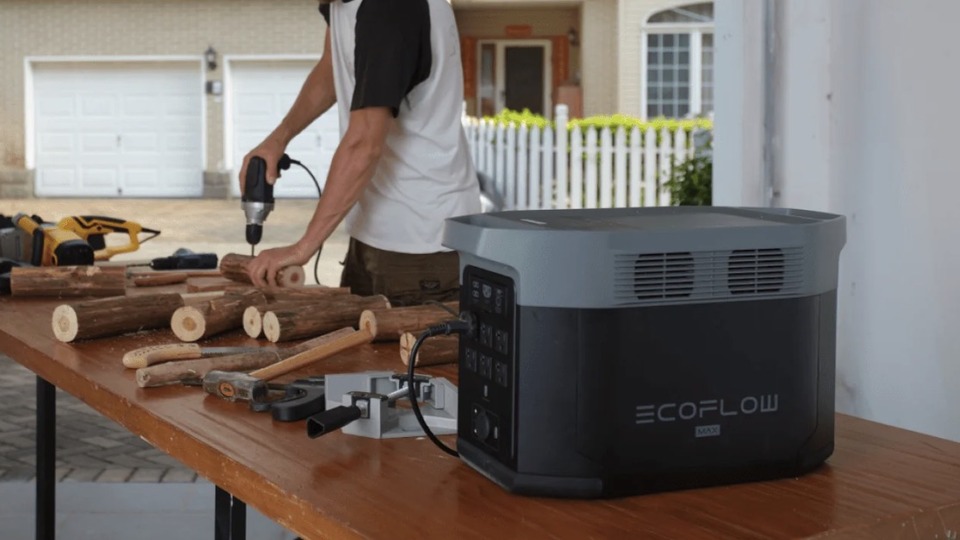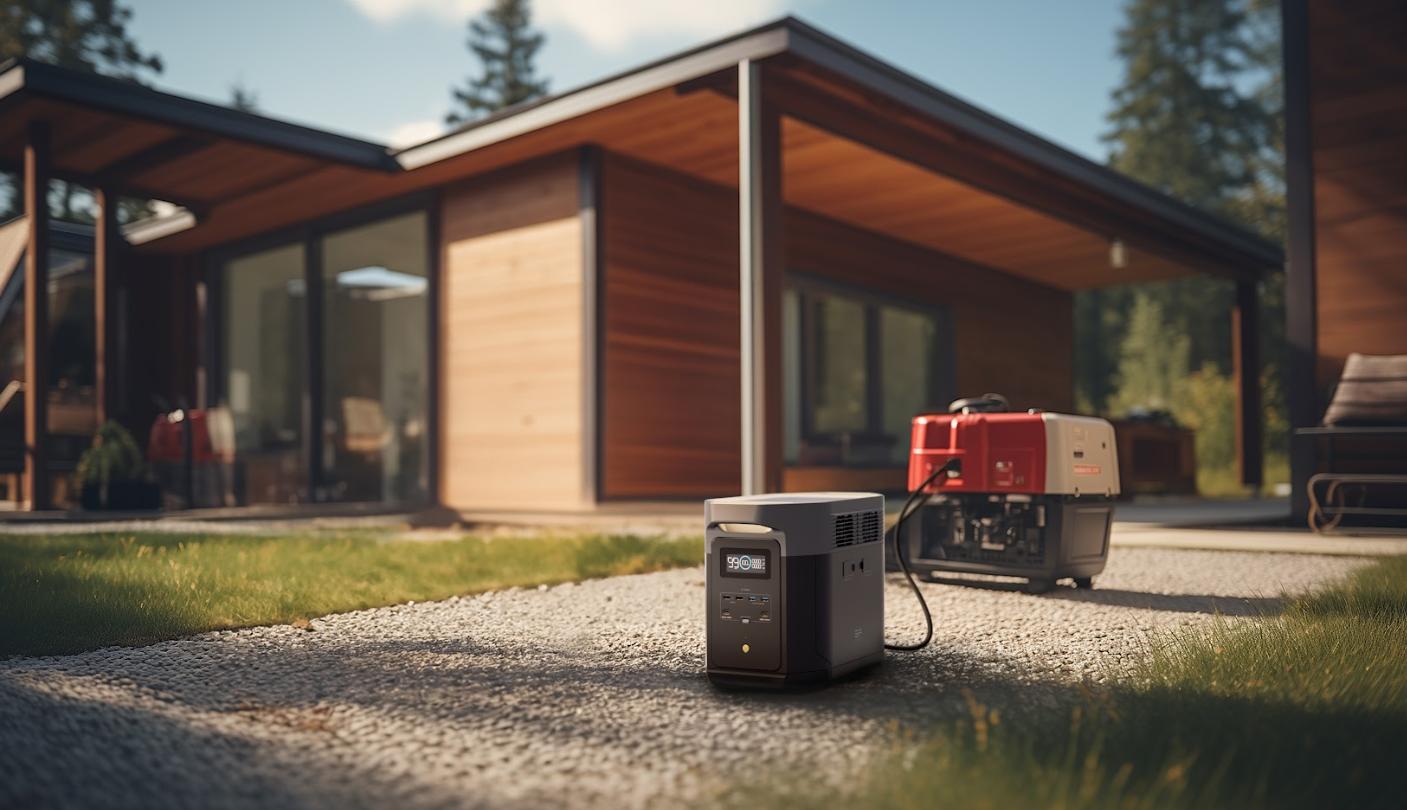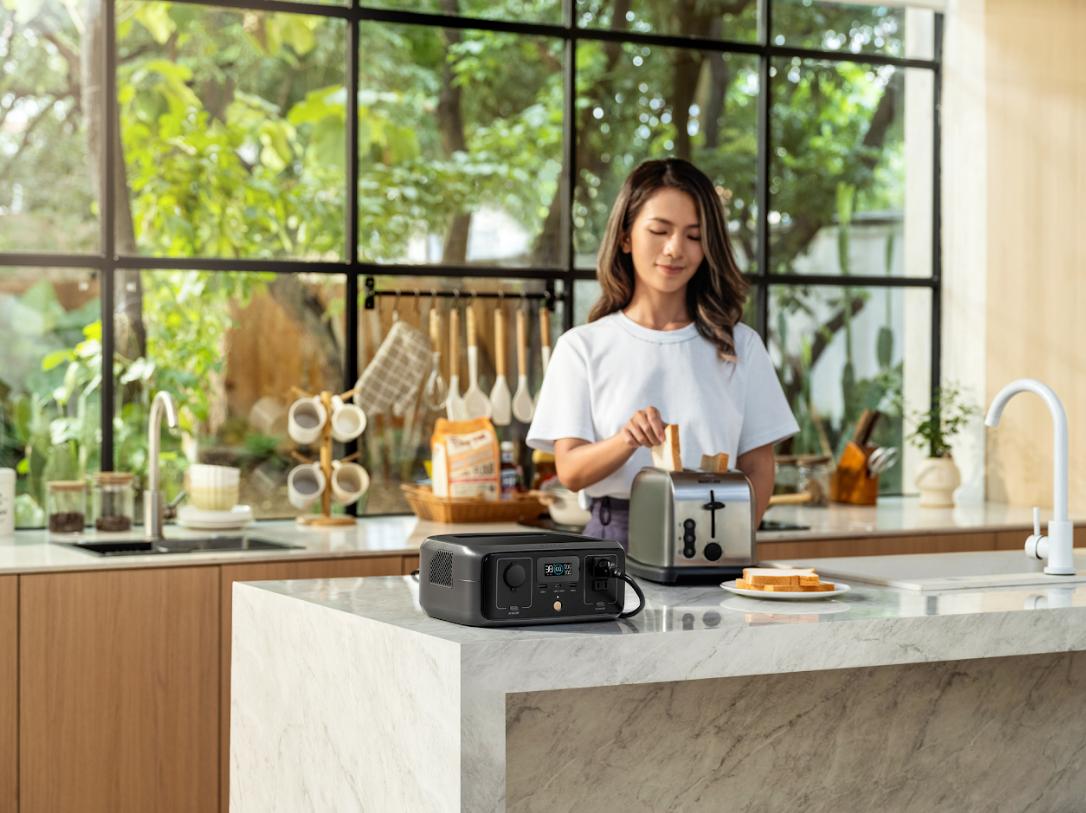Best Portable Power Station 2025 Must-Have for Everyone
Power cuts don't happen often, but when they do, they throw everything off. The lights go out, the Wi-Fi drops, and your phone's hanging on at 12%. It's the same story when you're out in a camper or setting up for a weekend in the wild—you need power, and you need it to last. By this time, a backup that's simple, quiet, and doesn't rely on fuel makes a big difference. This guide walks you through what it is, what to look for, and how to pick the best portable power station for everyday use, travel, or off-grid living.
What Is a Portable Power Station—and Who Needs One?
A portable power station is a rechargeable, battery-powered device that stores electrical energy and delivers it through standard AC outlets, USB ports, and DC carports. It operates silently and can be safely used indoors and outdoors. They're charged via wall outlets, solar panels, or car chargers and are ideal for powering phones, laptops, small appliances, and even medical devices during outages.

When comparing portable generators vs portable power stations, the key difference lies in how they generate power. Generators rely on fuel combustion and produce noise and emissions; instead, power stations store it for later use. This makes the latter more environmentally friendly and maintenance-free, though typically less powerful for heavy-duty needs.
So, who needs one? It's essential for emergency preparedness at home, off-grid adventures like camping or van life, remote work setups, and everyday convenience while traveling.
Best Portable Power Stations in the UK 2025
Following our look at what a portable power station is and who it's for, you may want to find the perfect one. Now, here are three picks in the UK for 2025 to help you choose.
EcoFlow DELTA 2 Max Portable Power Station
The EcoFlow DELTA 2 Max Portable Power Station is a smart, long-term solution for those living on the road or preparing for power outages, even off the beaten track. With expandable capacity up to 6kWh, it's ideal for longer camping trips, off-grid cabins, or as a home backup during blackouts. You can keep your essential gear going—charge a camera up to 99 times, a laptop 26 times, or a drone 39 times—without worrying about running low.
Besides, thanks to its massive 3100W output with X-Boost, the DELTA 2 Max can handle nearly any household appliance—from kettles to fridges—making it especially useful in emergencies or remote work setups. It powers up to 13 devices at once and recharges in just 2.3 hours with solar and AC combined, so you're never left waiting.
Specification:
Capacity: 2048 Wh
Battery Chemistry: LFP (LiFePO4 battery)
Cycle Life: 3000 cycles to 80+% capacity
Connectivity: Wi-Fi & Bluetooth
Dimensions: 497×242×305 mm
Net weight: 23 kg
Key Features:
Quiet operation at 30 dB, compared with 55 dB or higher for other units, ideal for indoor use.
Customised app to manage energy and monitor battery status.
Save on bills with PowerStream microinverter solar pairing.
99% MPPT efficiency captures maximum solar energy.

EcoFlow RIVER 3 Portable Power Station
The EcoFlow RIVER 3 Portable Power Station is built for those who need a short trip. When you head out for a weekend camping trip or need backup during a home power cut, RIVER 3 keeps your essentials running. Thanks to its X-GaNPower technology, it delivers up to double the runtime for low-wattage devices like Wi-Fi routers, LED lights, or CPAP machines, perfect for overnight use or off-grid.
Despite its compact size, RIVER 3 packs a punch. It powers up to 90% of everyday appliances and, with X-Boost, can handle up to 600W for things like electric blankets or small kettles. It's rugged enough to handle the outdoors, resistant to drops and water splashes and ideal for travel or emergency prep.
Specification:
Capacity: 245 Wh
Battery Chemistry: LFP (LiFePO4 battery)
Cycle Life: 3000 cycles to 80+% capacity
UPS: <20 ms
Optimal Operating Temperature: 20℃-30℃ (68°F-86°F)
Dimensions: 255×212×113 mm
Net weight: 3.55 kg
Key Features:
1-hour fast charging without battery damage.
Four charging options are available, including wall, solar, car, or generator.
IP54-rated, survives drops and splashes.
Power up to five devices simultaneously.

EcoFlow DELTA 2 Portable Power Station
As the best seller of Outdoor Generators & Garden on Amazon, the EcoFlow DELTA 2 Portable Power Station has earned its spot for good reason. With a starting capacity of 1kWh, it provides reliable power for essentials like lighting, phones, and laptops for hours at a time. Need more juice? You can expand it to 2048Wh with the DELTA 2 extra battery, or go even further with the DELTA Max battery up to 3040Wh—perfect for extended trips or backup at home.
With a strong 1800W AC output, DELTA 2 can run over 90% of household appliances, including your microwave, fridge, or coffee machine during a blackout. Hosting family? It powers up to 13 devices at once, and EcoFlow's X-Boost tech lets it handle surges up to 2400W without tripping. If you want to recharge it, recharging is rapid too: 0 to 80% in just 50 minutes, and a full charge in 80.
Specification:
Capacity: 1024 Wh
Battery Chemistry: LFP (LiFePO4 battery)
Cycle Life: 3000 cycles to 80+% capacity
Connectivity: Wi-Fi & Bluetooth
Dimensions: 400 x 211 x 281 mm
Net weight: 12 kg
Key Features:
Control remotely via the EcoFlow app.
Built to last six times longer than standard batteries.
Choose from solar panels (110W, 160W, 220W, 400W) without losing charge speed.
Backed by a 5-year warranty for peace of mind.

Key Features to Consider When Choosing a Portable Power Station
Since you've seen what the best portable power station UK has to offer, it's time to look at the key factors to consider before making a choice.
Capacity
Capacity, measured in watt-hours (Wh), determines how long a portable power station can run your devices. For basic needs like phones and laptops, 200-500Wh suffices. For longer trips or motorhome use, look for 1000Wh or more. For instance, the DELTA 2 MAX, with 2048Wh capacity, is one of the best portable power stations for motorhomes, offering reliable, extended power.
Power Output
Power output, measured in watts (W), dictates what devices can be powered. For example, to run small appliances or tools, look for at least 500W output. For heavier devices like refrigerators or power tools, aim for 1500W or higher. Remember, many appliances have surge power demands at startup, so a higher wattage rating helps avoid overloads.
Battery Type and Lifespan
Lithium-ion batteries are standard, but Lithium Iron Phosphate (LiFePO₄) batteries offer 2-4 times more charge cycles—often exceeding 3000 cycles—compared to 500-1000 cycles in lithium-ion. LiFePO₄ also handles heat better, reducing fire risk. If you plan to use your power station frequently or over many years, investing in LiFePO₄ technology provides better long-term value and reliability.
Output Ports and Device Compatibility
A versatile power station should include at least two to four AC outlets, multiple USB-A ports, and USB-C ports with Power Delivery (PD) delivering 30-100W for fast charging laptops and tablets. DC carports are also useful for automotive accessories. Having 4-6 ports or more ensures you can power multiple devices simultaneously without constant unplugging.
Charging Methods and Recharging Speed
Most portable power stations recharge via AC wall outlets, car chargers, and solar panels. A fast recharge time of 1-2 hours (up to 80%) via AC is ideal for convenience. Solar charging input capacity of 200-1000W is recommended for off-grid use; higher wattage panels reduce charging time significantly. Multiple charging options add flexibility depending on your location.
Extra Features
For portability, units weighing under 7kg are easier to carry for outdoor use, while larger home backup models may exceed 10kg but often include handles or wheels. Also, additional features like LCD displays, app control, built-in safety protections (overload, short-circuit), and the ability to connect extra batteries can enhance usability and safety.
Conclusion
Choosing gear like this can feel like a lot. But after checking out some top models and what features count, you're in a good spot to decide. The best portable power station isn't the flashiest. It's the one that fits your day-to-day, keeps you going when power drops out, and gives you one less thing to stress about. Ready to find your perfect match? Explore the EcoFlow options above and choose the best portable power station for your needs today.
FAQs
Which portable power station is the best?
The best portable power station really depends on your personal needs and usage. If you need something compact and light for short camping trips, a smaller unit like the EcoFlow RIVER 3 is ideal. For everyday backup and longer trips, the EcoFlow DELTA 2 offers the best balance of portability and power. If you’re preparing for blackouts or need something more heavy-duty, the EcoFlow DELTA 2 Max is the most reliable choice.
What size power station do I need to run a fridge?
To run a refrigerator using a portable power station, the required size depends on the fridge type and usage duration:
Mini Fridge/Camping Cooler: These typically consume under 50W. A power station with a capacity of 200–500Wh is sufficient.
Compact Fridge: Generally uses 100–200W. Opt for a power station with 300–500Wh capacity.
Standard Household Fridge: Consumes 100–200W continuously, with startup surges up to 600–800W. A power station with 500–1000Wh capacity and at least 500W continuous output is recommended.
Always check the specifications of both the refrigerator and the power station to ensure compatibility and adequate power supply.
Is a power bank better than a portable power station?
A power bank is convenient for charging phones, tablets, or other small electronics, especially when you’re on the go. However, its capacity and output are limited compared to a portable power station. Portable power stations are designed to run larger devices such as laptops, routers, fridges, or medical equipment, making them far more versatile for emergencies or travel. In short, if you only need phone charging, a power bank suffices—but for real backup or off-grid living, a portable power station is the better choice.